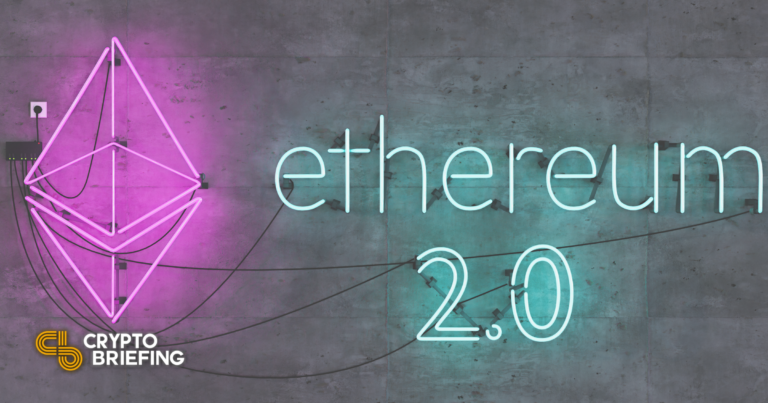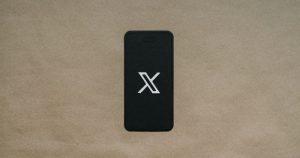Ethereum 2.0 Deposit Contract Surpasses $30B in Value

Key Takeaways
The Ethereum 2.0 deposit contract currently contains 9,008,082 ETH, or about $30.2 billion.
This deposit contract allows users to transfer funds from Ethereum mainnet to Beacon Chain, a parallel Proof-of-Stake network.
Ethereum is expected to switch to Proof-of-Stake with a proposed merge with Beacon Chain, tentatively scheduled in June 2022.
Share this article
As of today, the Ethereum 2.0 deposit contract contains about 9 million ETH, equivalent to about $30.2 billion.
Users Stake $30 Billion For ETH 2.0
9 million ETH have been locked in the Ethereum 2.0 deposit contract.
This deposit contract allows users to transfer funds from the Ethereum Proof-of-Work mainnet to Beacon Chain, a parallel-running Proof-of-Stake version of the blockchain. The Ethereum core team has operated Beacon Chain since Dec. 1, 2020 in addition to the Proof-of-Work mainnet that currently hosts all Ethereum dApps.
The highly-anticipated “merge” refers to the future event in which the Ethereum mainnet begins using the Beacon Chain for consensus, effectively eliminating Proof-of-Work within the Ethereum ecosystem.
According to the latest on-chain data on Etherscan, 9,008,082 ETH have been locked in Ethereum 2.0 deposit contract. At current ETH prices, the deposits represent about $30 billion staked under the initial phase of Ethereum 2.0–also known as Serenity.
The deposited 9 million ETH has been contributed by more than 280,000 validators on Beacon Chain. To become a validator, a user needs to deposit a minimum of 32 ETH, valued at around $108,000 currently.
Ethereum’s Future Roadmap
Ethereum, the largest public blockchain, is planning to switch to Proof-of-Stake–a consensus system that requires validators to stake their funds on the network in order to validate new transactions. In comparison, the present consensus mechanism, called Proof-of-Work, validates transitions using miners that leverage computing power from specialized hardware chips to solve complex computational problems.
It is hoped that the phased upgrade to Proof-of-Stake may lead to faster, cheaper, and more energy-efficient transactions on the blockchain. ETH 2.0 will also open Ethereum to sharding, a scaling mechanism in which the network is split into smaller portions.
Recent Updates: Arrow Glacier & Kintsugi
Before merging the two chains, the Ethereum community has been working on tooling to ensure a smooth transition and to check for potential bugs in the rollout.
Two important events took place in December 2021 in the lead-up to the Proof-of-Stake merge. The first was the Ethereum Improvement Proposal-4345. Codenamed Arrow Glacier, the EIP-4345 was initiated on Dec. 8. This upgrade postponed Ethereum’s “Difficulty Bomb” until June 2022 from its earlier planned date set in December. The Difficulty Bomb is a planned feature that will make Ethereum Proof-of-Work mining more difficult and less profitable. The mechanism is intended to ensure a smooth transition to Proof-of-Stake by disincentivizing resistance from miners. The EIP-4345 update also specified a timeline suggesting that the Proof-of-Stake merge could occur by June 2022.
Second, On Dec. 20, Kintsugi, a public testnet for ETH 2.0, was introduced. Aiming to find potential bugs, this testnet allowed the Ethereum community and users to publicly experiment with post-merge Ethereum. On Tuesday, Ethereum developer Marius van der Wijden reported in a Twitter post that the team had found and fixed bugs in ETH 2.0 client software that affected nodes’ ability to sync themselves with the network.
The exact date of the merge is still unknown, but it is widely anticipated to take place this year and is tentatively scheduled for June.
Disclosure: At the time of writing, the author of this piece owned ETH and other cryptocurrencies.
Share this article
The information on or accessed through this website is obtained from independent sources we believe to be accurate and reliable, but Decentral Media, Inc. makes no representation or warranty as to the timeliness, completeness, or accuracy of any information on or accessed through this website. Decentral Media, Inc. is not an investment advisor. We do not give personalized investment advice or other financial advice. The information on this website is subject to change without notice. Some or all of the information on this website may become outdated, or it may be or become incomplete or inaccurate. We may, but are not obligated to, update any outdated, incomplete, or inaccurate information.
You should never make an investment decision on an ICO, IEO, or other investment based on the information on this website, and you should never interpret or otherwise rely on any of the information on this website as investment advice. We strongly recommend that you consult a licensed investment advisor or other qualified financial professional if you are seeking investment advice on an ICO, IEO, or other investment. We do not accept compensation in any form for analyzing or reporting on any ICO, IEO, cryptocurrency, currency, tokenized sales, securities, or commodities.
See full terms and conditions.
Ethereum 2.0 Launched as Beacon Chain Goes Live
Ethereum 2.0 has successfully launched. The initial stage of the blockchain’s Serenity upgrade, known as Phase 0, involved the deployment of Ethereum’s Beacon Chain. The update sees Ethereum begin its…
Ethereum Hits Crucial Level After Breaking Below $3,000
Ethereum has started the week in sluggish mode after its price suffered another 7% dip. While many market participants are displaying signs of fear, the number two crypto appears to…
Ethereum Launches Kintsugi Testnet to Prepare for Merge
Ethereum has launched its Kintsugi testnet, the latest step toward replacing its Proof-of-Work consensus mechanism with Proof-of-Stake. Kintsugi Is a Step Toward Proof-of-Stake Ethereum Foundation member Tim Beiko posted today…
How SocialGood Is Offering 100% Crypto Cashback on Online Shopping
In recent years, the rise of Bitcoin and tokenized assets has made the cashback vertical ripe for disruption. Within the cashback market, blockchain-based loyalty networks are rising in popularity among…















